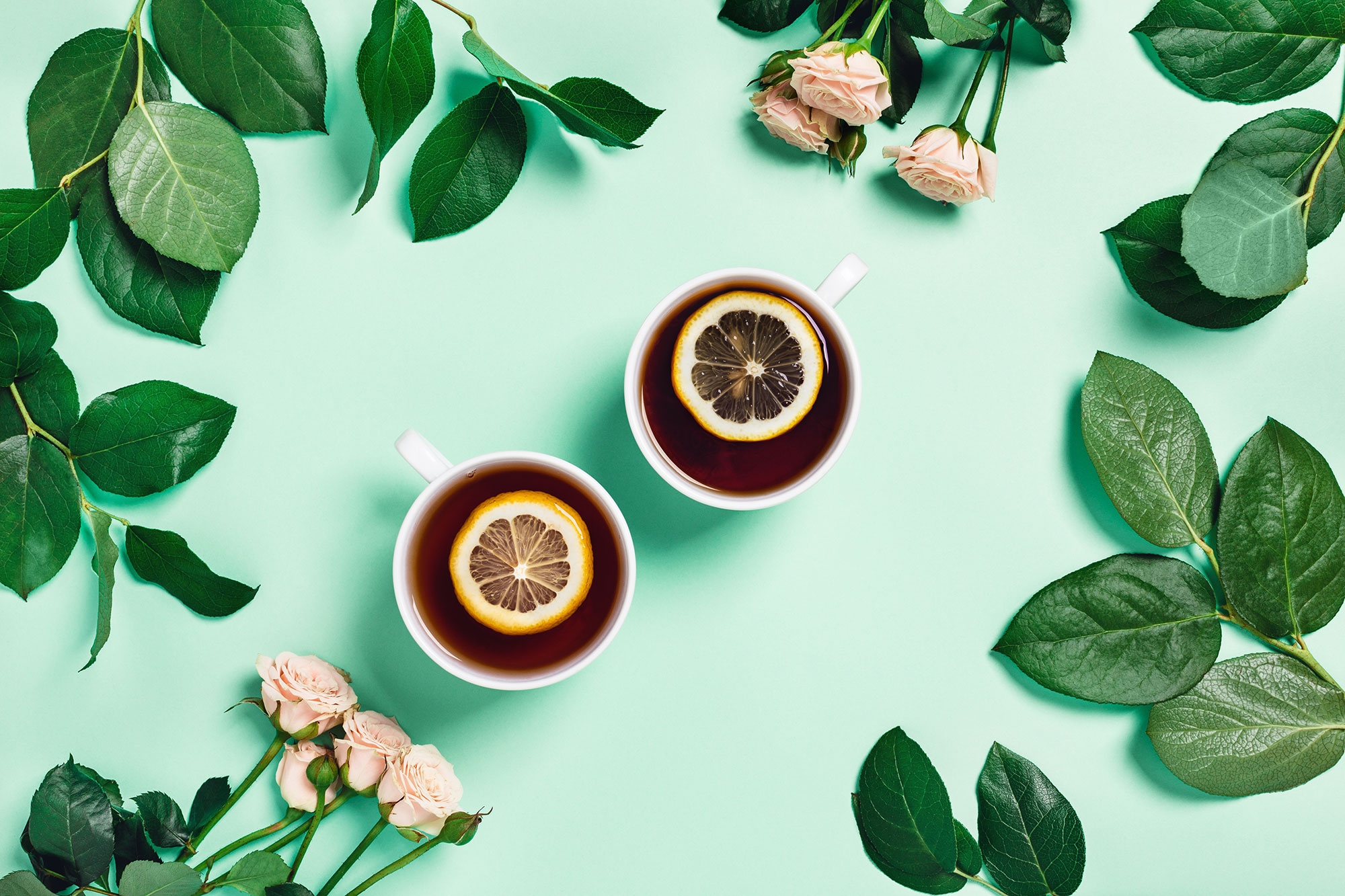

![]()

January is National Hot Tea Month, and I love any excuse to celebrate (and drink) tea. Sweet, iced tea is a staple in the South, but hot tea is one of the most popular beverages in the world — I’m even drinking almond-flavored green tea at the time of writing this.
Did you know that white, green, oolong and black teas all come from the same plant? The tea plant is the Camellia sinensis bush, which is native to China and India. Processing the tea leaves with different methods changes the final tea. Skilled tea makers add extra ingredients like spices and flowers to create flavored tea blends, such as the popular Earl Grey or jasmine teas.
Herbal teas consist of blended herbs and other plants. Although they are infused in hot water — because herbal teas don’t contain Camellia sinensis leaves — they aren’t true tea. Popular ingredients include chamomile, peppermint, rose hips and lemongrass. Rooibos, or red tea, is another popular herbal tea made from a South African plant.
Tea has options for any taste, whether your preference is light and delicate, fruity and sweet, or deep and earthy. You can even choose your caffeine level; white and green teas contain small amounts, while black tea can be comparable to a cup of coffee. Herbal teas are usually naturally caffeine-free. For example, I often start my day with a lively black tea, and then drink a relaxing lavender blend at night.
Tea actually has quite a long history that’s the subject of many books and stories. Chinese legend says that Emperor Shen Nong accidentally discovered tea in 2737 BCE, over 4000 years ago. It was first considered a medicinal drink, but in time, the craft and drinking of tea evolved into the daily beverage we know and love. Tea, and the tea trade, have even been the focus of wars between nations. Herbal infusions have long been a part of folklore and traditional remedies across the world.
Are you still working on our Fall Into Winter Reading challenge? The book A History of Tea: the Life and Times of the World’s Favorite Beverage fills the “Read a nonfiction book about history” square.
How can you celebrate Hot Tea Month? Check out the resources we have on any of the following:
Discover a new favorite tea with a guide to artisan teas.
Host an impressive tea party for friends.
Plant homegrown tea in a garden.
Learn to read tea leaves, a form of fortune-telling that dates to 17th century Europe.
Search our program calendar for “tea” and attend any of the fabulous upcoming events at library branches, including various themed tea parties and even trivia.
[INSERT_ELEMENTOR id=”112550″]
[INSERT_ELEMENTOR id=”112572″]